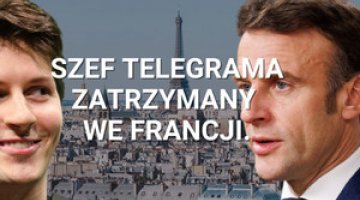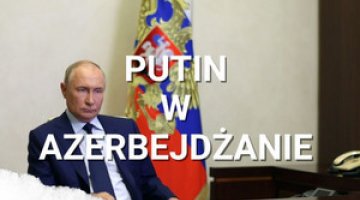The Russian aspects of the ‘Panama scandal’
The first series of the Panama Papers concerning how public figures from many countries use tax havens to carry out – at times illegal – financial operations was published on 3 April. The papers contain information about approximately twenty Russian citizens, mainly businessmen, politicians and state officials and their family members, some of whom belong to President Vladimir Putin’s inner circle.
The contents concerning Russia are proof of what was already known about how power and ownership function there. They also provide a significant portion of previously unknown detailed information (of a partly illegal or legally dubious nature) about the financial activity of members of the Russian elite. They clearly suggest that President Putin has been one of its beneficiaries, although no concrete evidence has been presented against him. The first reactions from Moscow were to disavow the publication. One way in which they presented it was as another stage of the Washington-controlled conspiracy against Russia. The contents of the papers, even though the Russian government’s image has been affected, for the time being does not seem to pose any serious political threat to the Kremlin.
Putin’s secret financial empire?
Since 3 April, the International Consortium of Investigative Journalists (ICIJ), the Organised Crime and Corruption Reporting Project (OCCRP) and independent media organisations co-operating with them (including the Russian Novaya Gazeta) have published a series of materials (the Panama Papers) revealing how public figures from many countries have used tax havens to conduct, at times illegal, financial operations. The papers have been developed on the basis of a massive data leak (11.5 million documents covering the years 1977–2015) from the Panama-based law firm Mossack Fonseca.
The papers published so far (mainly summaries of documents that have been made available to journalists, with added comments and conclusions) include information on approximately twenty Russian citizens: businessmen, politicians and state officials, and their family members, some of whom belong to President Vladimir Putin’s inner circle. The vast majority of them do not contain direct and explicit evidence that they have broken the law. The journalists’ suggestions that President Putin has been involved in illegal or legally dubious operations are based on circumstantial evidence.
The most serious paper which indirectly concerns the Russian president points to assets registered in tax havens by his close friend, the renowned cellist, Sergei Roldugin (the godfather of Putin’s older daughter). According to the authors, he is merely the formal owner of the financial assets, while Putin is the real beneficiary . As the documents show Roldugin’s assets include a few firms through which billions of dollars flow (total turnovers of the most important of them reportedly reached US$2 billion), and the major Russian oligarchs have been directly engaged in the financial operations effected with their help (including brothers Arkady and Boris Rotenberg, Putin’s close friends, and Suleyman Kerimov). Income has been generated by illegal or legally dubious operations aimed at siphoning considerable sums of money out of the country, often the proceeds of the embezzlement of public funds. The operations included sham loans granted by Russian state-owned banks to Roldugin’s firms registered in tax havens, and sham trading in the shares of large state-owned companies (including Rosneft). Another mechanism described which is used to siphon funds out of the country involved unusually lucrative contracts between oligarchs and Roldugin (in fact, donations which reportedly ultimately go to the Russian president). State-controlled banks (Sberbank and Vneshtorgbank) and the private bank Rossiya (on which sanctions were imposed in 2014) have been engaged in these mechanisms. Income from such operations are frequently reinvested in Russia, mainly through the purchase of shares in strategic firms (including Video International, an advertising sector potentate, automotive companies, such as KamAZ and AvtoVAZ) and also, for instance, in the president’s luxury real estate. Putin is reported as being the real owner of the assets, although they are formally registered as belonging to his best friends/oligarchs (for example, Yury Kovalchuk).
In addition to Putin, other public figures have been mentioned in the papers (see Appendix) who have held (at present or in the past, directly or via their family members) financial assets registered in tax havens (mainly in the British Virgin Islands), and this has been prohibited by Russian law since 2013.
The ‘Panama scandal’ vs. earlier publications
Materials discrediting the most senior members of the Russian elite are published on a regular basis. As with the Panama Papers, they describe how people from Putin’s inner circle have built their fortunes on illegal financial operations and stealing national property, and disclose close links between senior officials and their families with oligarchs. Worth mentioning are, for example: the BBC’s broadcast Putin’s Secret Riches published in January 2016, and information dating back to the beginning of Putin’s career as president, concerning the luxury properties he owns. The publication of the Panama Papers was immediately preceded by reports revealed in late March/early April 2016 discrediting the Kremlin. These concerned Arkady Rotenberg’s close associate, Grigory Bayevsky, who reportedly gave expensive real estate to women linked to Vladimir Putin (including his daughter, Ekaterina), and the links of the deputy head of the Federal Drug Control Service, Nikolai Aulov with the so-called Tambov mafia (he is wanted in Spain under an international arrest warrant).
When compared to previous reports, the added value of the Panama Papers mainly goes down to how it reveals new participants in the dealings (above all Roldugin), details of the financial operations, and the factual evidence (dates, personal details, company names). The published materials are compromising to the official Russian government’s campaign for a so-called ‘de-offshorisation’ (including the statutory ban on holding accounts with foreign banks imposed in 2013 on state officials and their families) and the anti-corruption campaign (the most recent manifestation of which was the approval of the National plan for counteracting corruption for 2016–2017 on 1 April).
The government’s reaction and the possible consequences of the ‘Panama scandal’
Moscow’s reaction even before the papers were published makes it possible to conclude that the leak has upset Putin’s milieu. One proof of this were the unprecedented statements made twice (on 28 and 31 March) by the Kremlin’s spokesman, Dmitry Peskov. He warned of an ‘information war’ that was being prepared against Putin, describing it as an attempt to destabilise the situation in Russia and discredit the country’s leadership ahead of the parliamentary election in September 2016. It has been emphasised in comments after the publication (so far Dmitry Peskov, Andrey Kostin, the CEO of Vneshtorgbank, the Minister for the Economy Alexey Ulyukaev and a representative of Arkady Rotenberg amongst others have expressed their opinion on it) and in the reaction from the official media that the papers are based on circumstantial evidence, lack reliability and are biased. This is allegedly a result of ‘Putinophobia’ and the US government’s ‘sponsoring’ the journalists’ investigation. The United States allegedly wants to once again discredit Russia at a time when it is rebuilding its strong international position partly owing to its ‘successes’ in Syria, and also to discredit Vladimir Putin in the context of the presidential election in 2018. Russia is also likely to focus on those threads of the scandal which concern Western politicians and – for the needs of the anti-Ukrainian campaign – the reports concerning the Ukrainian president, Petro Poroshenko.
Even though the publication affects the reputation of the Russian government (above all in the international arena), it does not seem to pose any serious political threat to the Kremlin as yet, mostly due to the fact that the allegations against Putin are based on circumstantial evidence. Most likely – similar to previous publications of this kind – it will not resound widely among the Russian public, who view corruption as something inherent in the system. However, it cannot be ruled out that it will contribute to expanding the list of the citizens of the Russian Federation (especially from Putin’s inner circle) covered by Western sanctions. The full content of the papers has not been revealed as yet and it remains an open question what the possible consequences will be for Russia of the ‘Panama investigations’ that will be launched in other countries.
Appendix
Selected Russian protagonists of the ‘Panama scandal’
Sergey Roldugin, a cellist, Vladimir Putin’s friend
Yuri Kovalchuk, an oligarch, Vladimir Putin’s friend
Arkady Rotenberg, an oligarch, Vladimir Putin’s friend
Boris Rotenberg, an oligarch, Vladimir Putin’s friend
Igor Rotenberg, Arkady Rotenberg’s son
Alexey Mordashov, an oligarch
Suleyman Kerimov, an oligarch
Dmitry Peskov, the Kremlin’s spokesman (the assets are owned by his present wife, Tatiana Navka)
Nikolai Patrushev, secretary of the Security Council of the Russian Federation (foreign assets are owned by his relative, Alexey Patrushev)
Ivan Malushin, former deputy head of the Presidential Administration. The information concerning his business links with the Tambov mafia boss, Gennady Petrov is worth noting. The papers also suggest the existence of indirect links between Petrov and Putin via Alivekt, a firm which was established in 1991.
Alexey Ulyukaev, minister for economic development (the assets are owned by his son, Dmitry Ulyukaev and wife, Julia Khriapina)
Aleksandr Makhonov, deputy minister of internal affairs
Maksim Liksutov, deputy mayor of Moscow (the assets are owned by his wife, Tatiana Liksutova)
Igor Zubov, deputy minister of internal affairs (the assets are owned by his son, Denis Zubov)
Andrey Turchak, governor of Pskov Oblast (assets are owned by his wife, Kira Turchak)
Boris Dubrovsky, governor of Chelyabinsk Oblast
Viktor Zvagelsky, Member of Parliament representing the ‘government party’ United Russia
Aleksandr Babakov, Member of Parliament representing the ‘government party’ United Russia (the assets are owned by his daughter, Olga)
Mikhail Slipenchuk, Member of Parliament representing the ‘government party’ United Russia
Suleyman Geremeev, member of the Council of the Federation representing Chechnya, a close aide to Ramzan Kadyrov
Sergey Chemezov, the CEO of the state-owned company Rostec, a friend of Putin (the assets are owned by his son, Stanislav).




